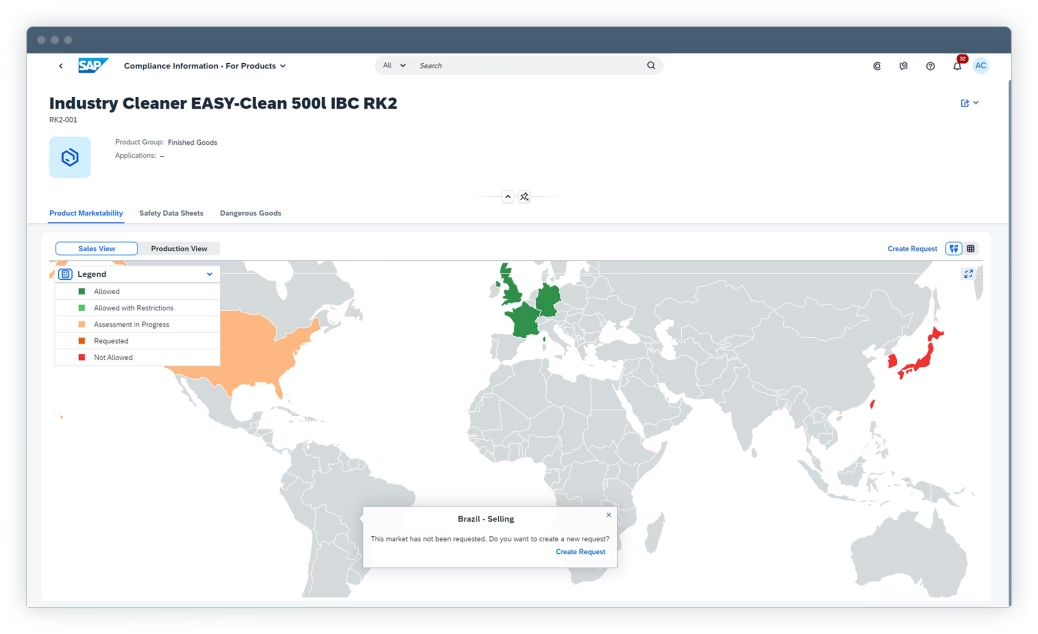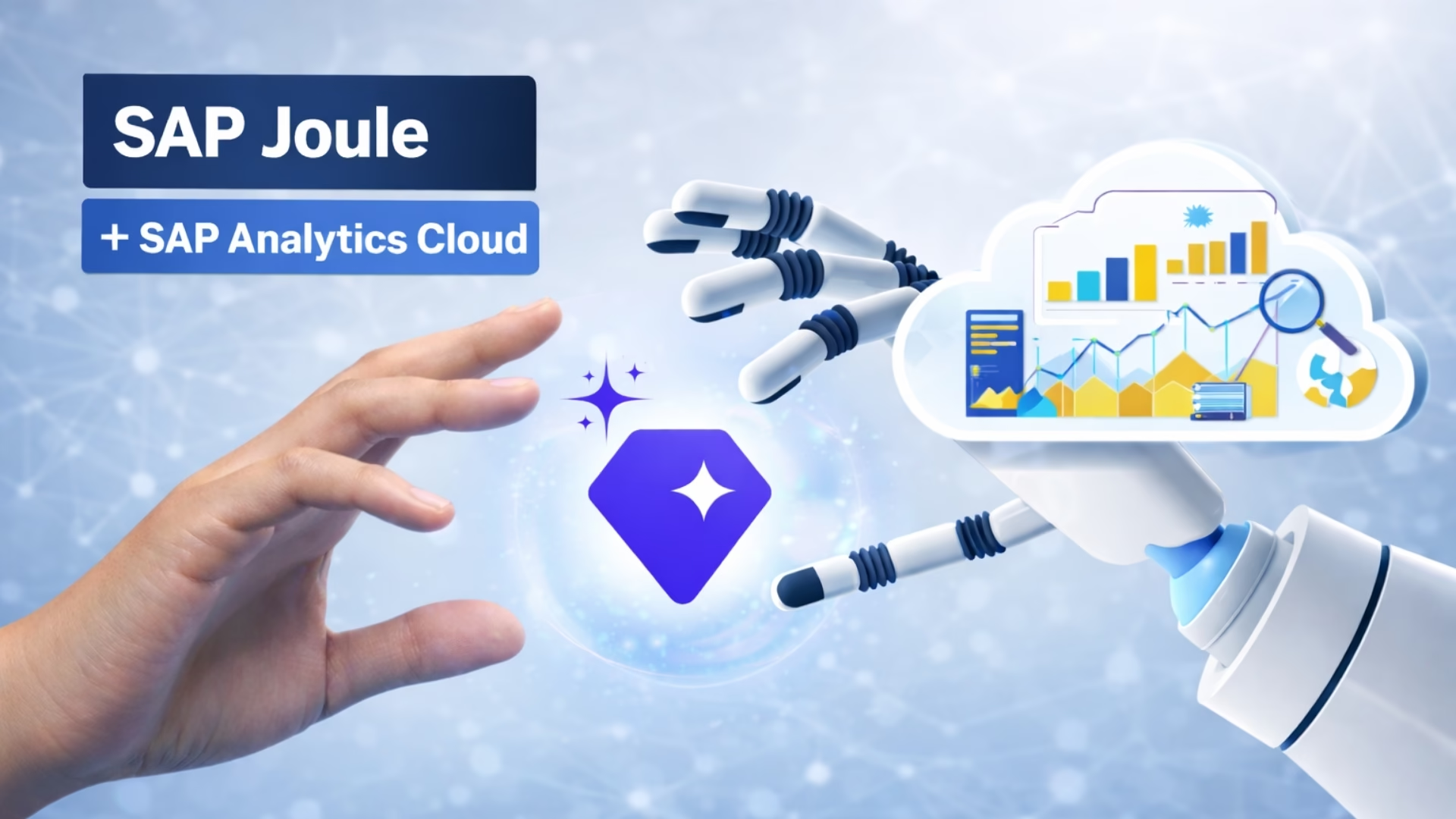AI Agents: The New Frontier in SAP Innovation
In today’s rapidly evolving technological landscape, artificial intelligence has emerged as a transformative force across industries. Among the most promising developments in this field are AI agents—autonomous, intelligent systems that are reshaping how businesses operate. For SAP professionals and consultants, these AI agents represent not just a technological advancement but a strategic opportunity to drive unprecedented value.
Understanding AI Agents: Digital Colleagues, Not Just Tools

AI agents are far more than simple automation tools. Think of them as digital colleagues capable of independent action, learning, and adaptation. Unlike traditional software that follows fixed instructions, AI agents can understand objectives, formulate plans, and execute complex tasks with minimal human oversight.
Within the SAP ecosystem, these agents are breaking down traditional barriers between departments, creating seamless workflows, and enabling a level of operational intelligence previously unattainable.
The Cognitive Architecture of AI Agents
To appreciate the transformative potential of AI agents, we must understand their underlying architecture:
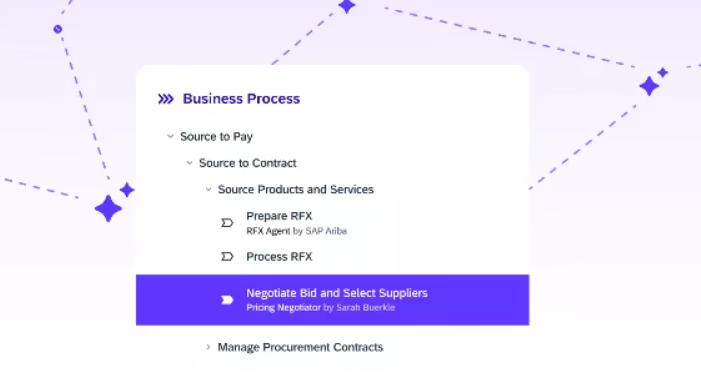
1. Natural Language Processing forms the foundation, allowing agents to understand and respond to human instructions through sophisticated large language models (LLMs). This enables SAP users to communicate with systems in conversational language rather than technical commands.
2. Planning and Adaptability capabilities enable agents to create custom workflows to achieve specified goals. Unlike rigid automation, these agents can recalibrate their approach when facing unexpected challenges or new information.
3. Tool Integration allows agents to access and leverage various software tools, databases, and APIs. In an SAP environment, this means seamless interaction across modules like S/4HANA, SuccessFactors, and Ariba.
4. Continuous Learning ensures that agents improve over time through both explicit feedback and observation of outcomes. Each interaction becomes a learning opportunity, making the agent increasingly valuable.
5. Collaborative Intelligence enables agents to work together in multi-agent systems, tackling complex problems that require coordination across different domains of expertise.
SAP Joule: SAP’s Answer to the AI Agent Revolution

At the forefront of SAP’s AI strategy stands Joule—an intelligent agent designed specifically for the SAP ecosystem. Joule represents a significant advancement in how businesses interact with their SAP environments through:
Context-Aware Intelligence: Joule understands the business context behind user requests, drawing from connected SAP systems to provide relevant, accurate responses.
Cross-Application Integration: By bridging traditionally siloed SAP applications, Joule creates a unified experience that transcends module boundaries.
Natural Conversation Capabilities: Users can interact with complex SAP systems through simple, conversational language, dramatically reducing the learning curve.
Continuous Evolution: Through ongoing interactions, Joule becomes increasingly attuned to user needs and organizational patterns.
Transformative Use Cases Across Business Functions
Finance: Accelerating Dispute Resolution
Financial teams often struggle with invoice disputes that create cascading problems: delayed payments, strained customer relationships, and distracted personnel. SAP’s AI agents address this challenge through:
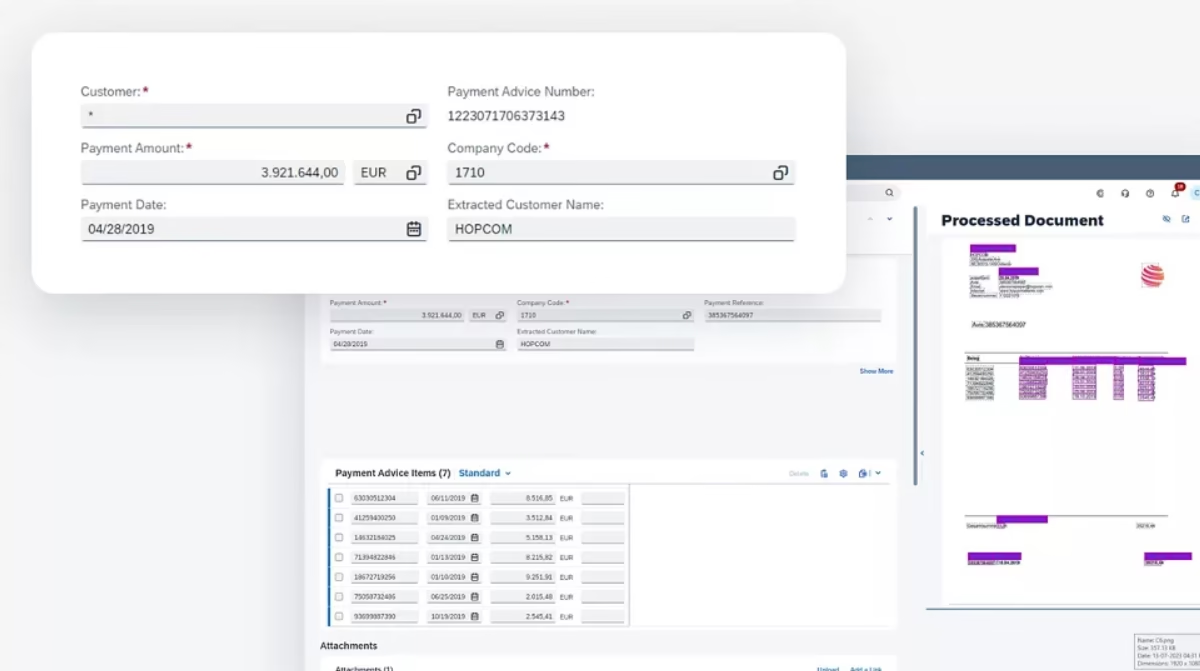
Automated Case Validation: The moment a dispute arises, AI agents evaluate its legitimacy against historical patterns and established rules.
Intelligent Root Cause Analysis: Rather than surface-level assessment, agents conduct deep investigation across invoices, contracts, and communications to identify underlying issues.
AI-Generated Resolution Pathways: Instead of reactive responses, agents proactively propose resolution options with their likely outcomes.
Orchestrated End-to-End Resolution: Once a path is selected, agents coordinate all necessary activities—from issuing corrected invoices to updating records—creating a seamless experience for all parties.
The result is not just faster resolution but more accurate outcomes and improved customer relationships.
Human Resources: Reimagining Talent Management
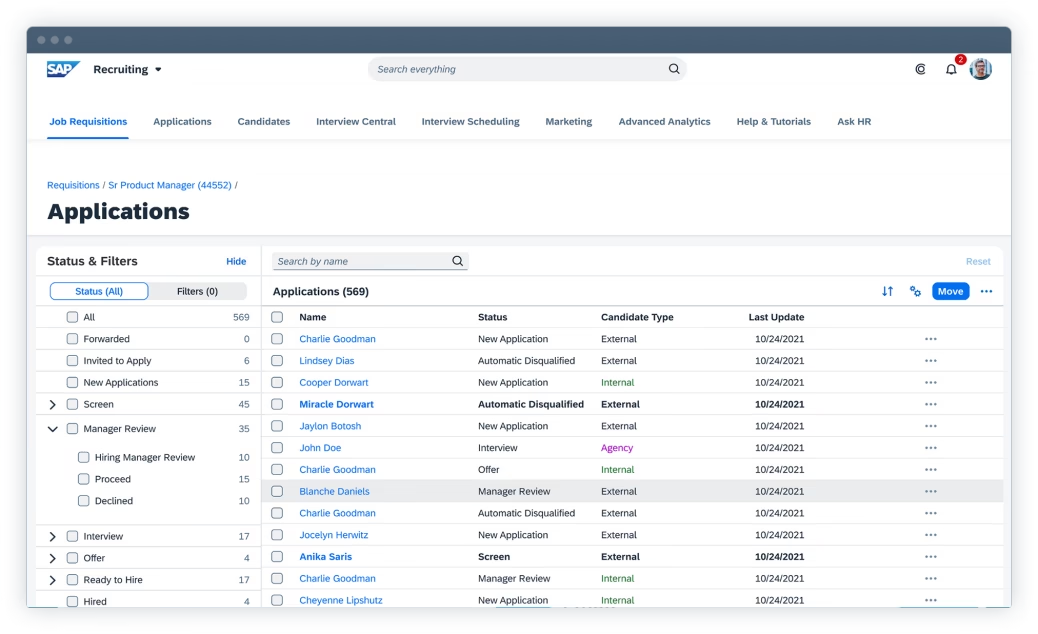
The modern workforce demands responsive, personalized HR experiences. AI agents are making this possible by:
Streamlining Recruitment Cycles: HR managers can create requisitions and process candidates through natural language commands, reducing administrative burden.
Automating Routine Workflows: From generating job descriptions to processing time-off requests, agents handle predictable tasks with consistent quality.
Enhancing Employee Engagement: Managers gain immediate access to compensation insights and feedback mechanisms, creating more responsive leadership.
Empowering Self-Service: Employees can access information and initiate processes through conversation rather than navigating complex systems.
This transformation shifts HR from a primarily administrative function to a strategic partner in organizational success.
Sales: Converting Time into Customer Value
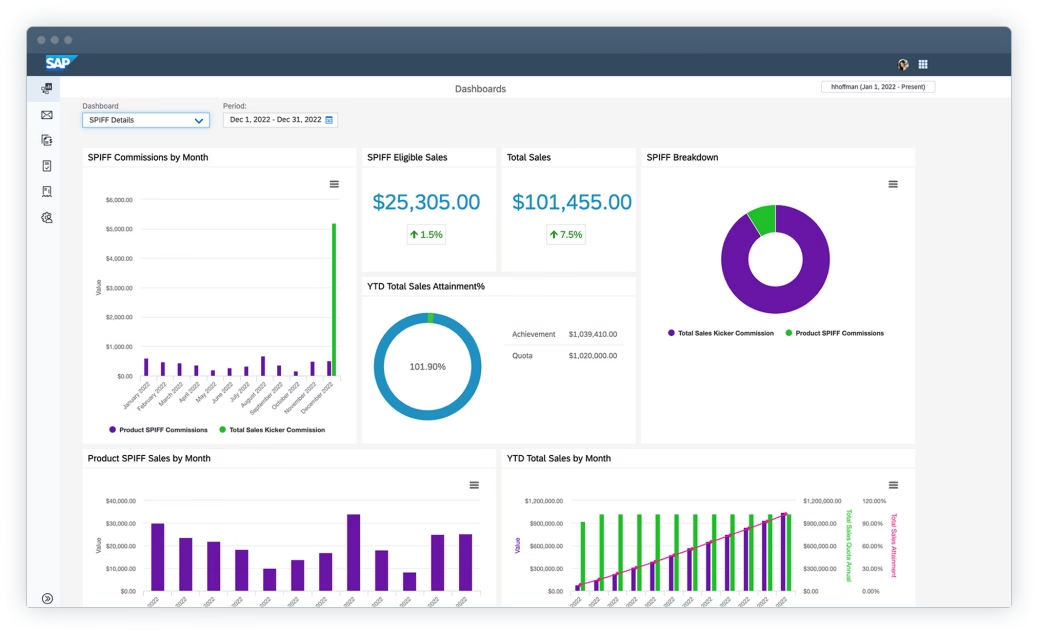
In sales environments, where time directly impacts revenue, AI agents create competitive advantage by:
Managing Sales Opportunities: Agents review opportunities, suggest responses to customer inquiries, and maintain current information without sales team intervention.
Eliminating Administrative Burden: Through natural language commands, sales professionals can update appointments, log meeting notes, and adjust quotes without interrupting their customer-focused activities.
Providing Contextual Intelligence: Before customer interactions, agents compile relevant insights from across the SAP landscape, ensuring sales professionals enter every conversation fully prepared.
Enabling Real-Time Forecasting: Sales pipelines adjust automatically based on current activities, creating more accurate projections without manual intervention.
These capabilities allow sales teams to focus on relationship-building rather than system management.
The Strategic Advantage of AI Agents
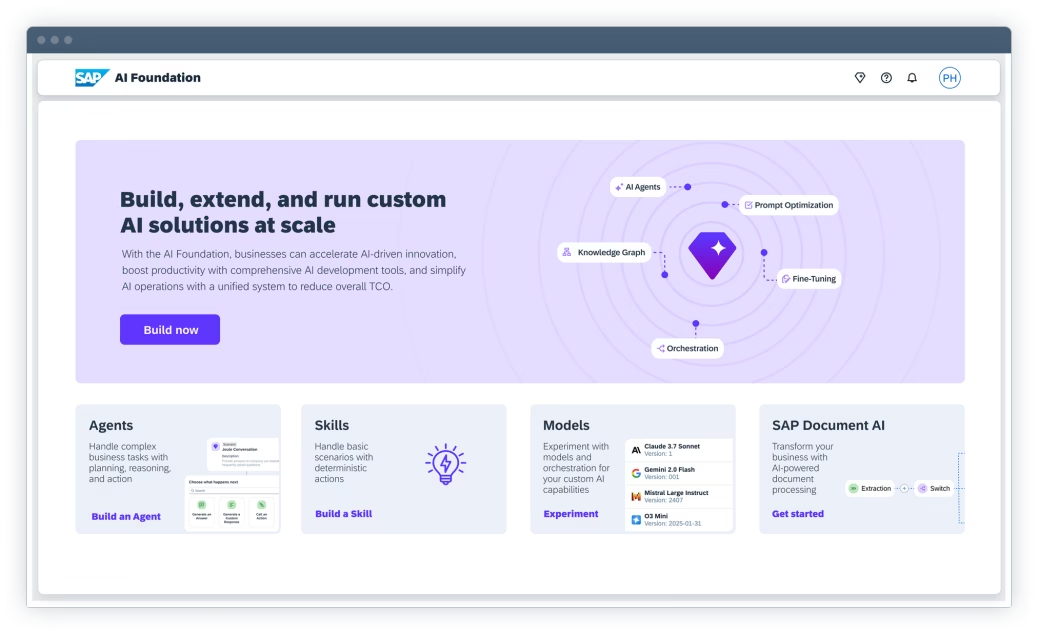
For SAP professionals, AI agents offer distinct advantages that extend beyond simple efficiency:
Elevated Focus: By handling routine tasks, agents allow professionals to concentrate on strategic, creative work that truly requires human judgment.
Enhanced Decision Quality: Agents provide comprehensive analysis and recommendations based on organizational data, leading to better-informed decisions.
System-Wide Optimization: Through multi-agent collaboration, organizations can coordinate activities across departments that traditionally operate in isolation.
Reduced Operational Costs: Automation of high-volume, repetitive tasks generates significant cost savings while improving consistency.
Scalable Operations: AI agents can manage increasing workloads without proportional increases in staffing, creating more resilient operations.
Data-Driven Intelligence: By continuously analyzing patterns across the organization, agents generate insights that might otherwise remain hidden in data silos.
Understanding the AI Agent Spectrum
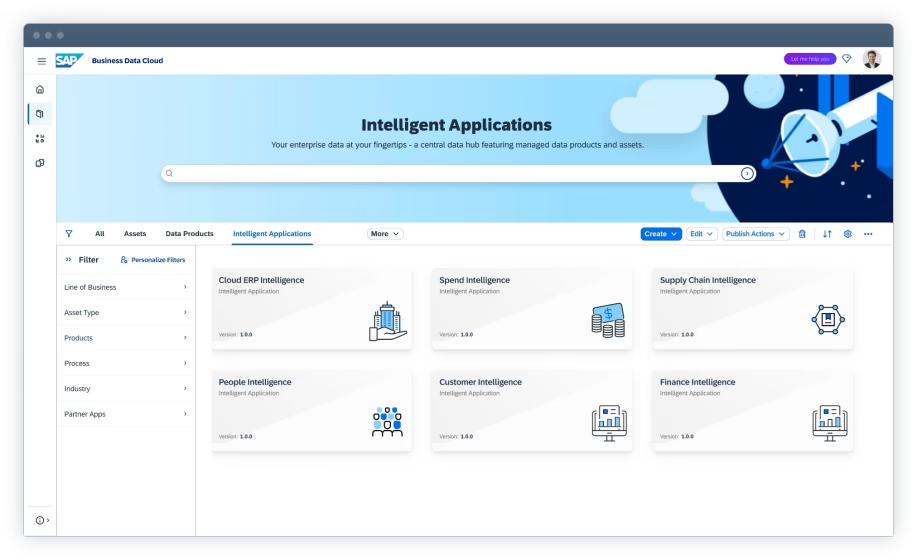
Not all AI agents are created equal. SAP professionals should understand the range of agent types to deploy them effectively:
Reactive Agents respond to specific triggers with predefined actions—ideal for straightforward processes like access management or basic queries.
Proactive Agents anticipate needs by monitoring systems and identifying potential issues before they impact operations.
Hybrid Agents combine reactive and proactive capabilities to handle complex workflows that require both immediate response and forward planning.
Utility-Based Agents make decisions by evaluating potential outcomes against organizational priorities, optimizing for specific metrics like cost, time, or quality.
Learning Agents continuously refine their performance through feedback and observation, making them suitable for dynamic environments where conditions frequently change.
Collaborative Agents operate in coordinated systems to manage end-to-end processes that cross traditional functional boundaries.
AI Agents vs. AI Copilots: Partners, Not Competitors
While both leverage similar underlying technologies, AI agents and copilots serve distinct purposes:
AI agents operate autonomously, making decisions and taking actions with minimal human oversight. They’re ideal for predictable processes that require consistent execution.
AI copilots augment human capabilities by providing real-time assistance and recommendations. They shine in scenarios requiring nuanced judgment and creative thinking.
In a mature SAP environment, both have essential roles. Copilots enhance human performance in complex tasks, while agents handle routine operations independently.
Implementation Best Practices
To maximize the value of AI agents in SAP environments, consider these implementation principles:
Maintain Appropriate Oversight: Even as agents become more autonomous, establish clear governance defining when human approval is required.
Integrate Organizational Knowledge: Train agents on internal data and processes to ensure their actions align with organizational realities.
Foster Human-AI Collaboration: Create workflows where humans and AI agents complement each other’s strengths rather than operating in isolation.
Commit to Continuous Improvement: Regularly review agent performance and incorporate feedback to enhance capabilities over time.
Start With Well-Defined Use Cases: Build confidence through initial projects with clear boundaries before expanding to more complex scenarios.
The Future of SAP Professionals in an Agent-Enhanced World
As AI agents become more prevalent, the role of SAP professionals will evolve—not diminish. The most successful professionals will:
- Develop expertise in designing and orchestrating agent-based systems
- Focus on strategic business outcomes rather than tactical execution
- Serve as translators between business needs and technical capabilities
- Provide oversight and intervention for exceptional cases
- Continuously identify new opportunities for agent deployment
Conclusion: Embracing the Agent-Assisted Future
The integration of AI agents into the SAP ecosystem represents one of the most significant advances in enterprise technology in decades. For SAP professionals, this evolution creates unprecedented opportunities to drive business value through intelligent automation, enhanced decision-making, and seamless cross-functional coordination.
As we move further into this agent-assisted future, those who embrace these technologies—understanding both their capabilities and limitations—will position themselves at the forefront of business innovation. The question is no longer whether AI agents will transform SAP environments but how quickly organizations can harness their transformative potential.
For SAP consultants and professionals navigating this changing landscape, continuous learning about AI agents isn’t just advantageous—it’s essential for future success.
🤔 What if the smartest career move you make this year is learning SAP AI? Discover the SAP AI Masterclass on Udemy (crafted by Ex-SAP Employees)

